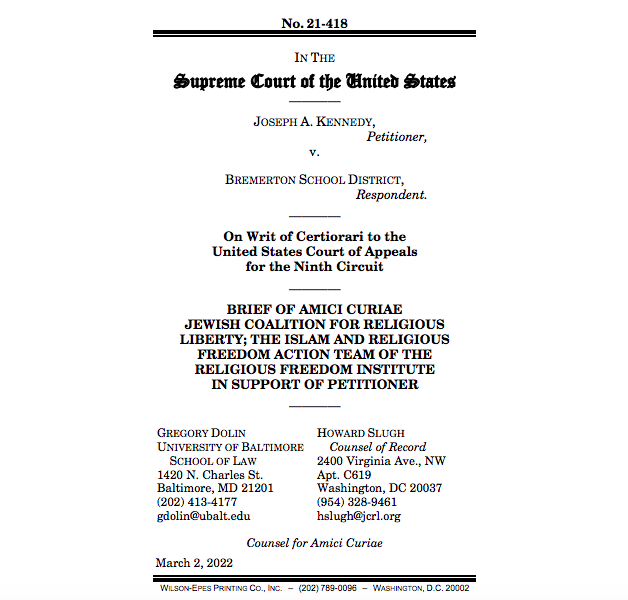Summary of facts: A high school football coach lost his job after he knelt at midfield after games to offer a quiet personal prayer. The coach sued in federal court, alleging that the school district violated his rights under the Free Speech and Free Exercise Clauses of the First Amendment. He lost in the trial court and the court of appeals affirmed.
RFI’s position: Adherents to Orthodox Judaism, Islam, and other minority faiths engage in public practices that may draw the attention of non-adherents. Uncommon practices are more likely to stand out or arouse curiosity, and therefore to be perceived as “visible to students.” The decision of the court of appeals would allow or even require public schools to ban such private religious conduct simply because of its heightened visibility. The Court should reverse the decision below and reaffirm that public school teachers are permitted to engage in private non-coercive religious conduct even if it happens to be visible to students.
Read the amicus brief here.
THE RFI BLOG

Is Egypt’s Government Trying To Take Over Christianity’s Most Important Monastery?

Does Southeast Asia Lead the World in Human Flourishing?

RFI Leads Training Session on Religious Freedom Law and Policy for U.S. Army War College

Oral Argument in Charter School Case Highlights Unconstitutional Motives Behind OK Attorney General’s Establishment Clause Claim

Largest Longitudinal Study of Human Flourishing Ever Shows Religion’s Importance
CORNERSTONE FORUM

Reaffirming Religious Freedom: Bridging U.S. Advocacy and Iraq’s Constitutional Framework

Political Polarization, Same-Sex Marriage and Religious Liberty

Bridging the Gap Between International Efforts and Local Realities: Advancing Religious Freedom in the MENA Region

Challenges to Religious Freedom in Iraq and the Critical Need for Action


